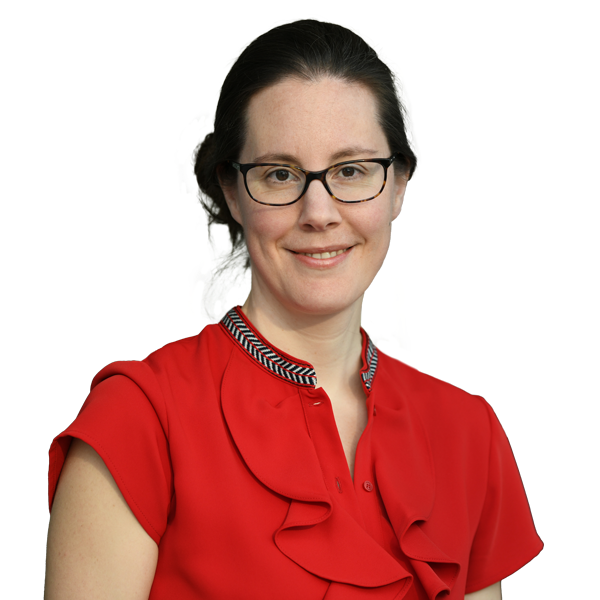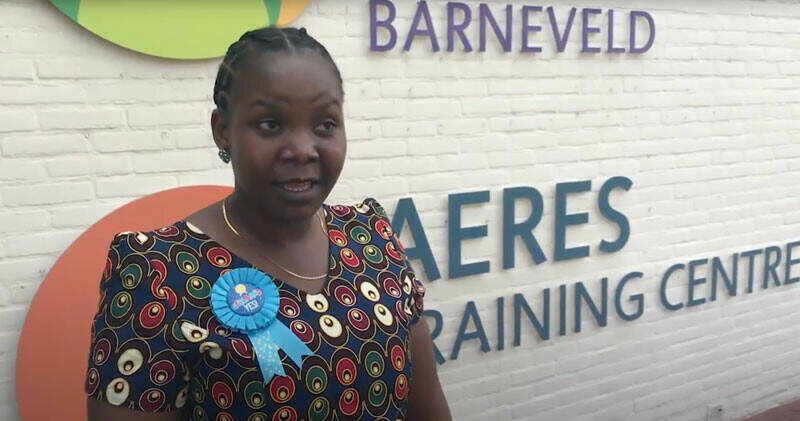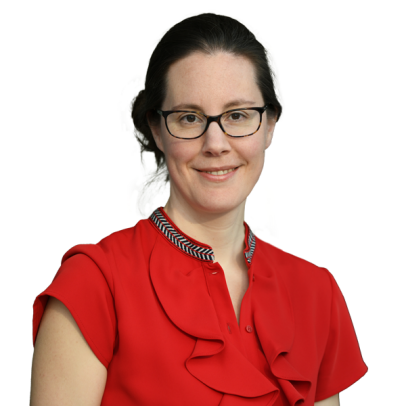Roos Hogenkamp is manager of the Global department at Nuffic. In this department, she and her colleagues work daily to strengthen education by stimulating knowledge cooperation between the Netherlands and other countries. Her motivation: "Helping developing countries move forward by giving them knowledge."

Nuffic is a foundation that operates independently. Nuffic’s goal is to make education accessible to all and to grant every pupil or student an international experience. This is achieved, for example, through government knowledge cooperation programmes, but also the ‘Erasmus plus programme’. Roos: “We strongly believe in policy coherence. Together we are stronger, so let us join forces wherever possible. Nuffic was recently granted EU Pillar Assessed status by the European Commission, which means the doors are open in terms of new programmes from and with the EU. By using the embassies, the network and all that comes with it, budgets can be multiplied and we can strengthen programmes. All with the aim of using every euro and making the world a better place.”
Countless students gain a study experience abroad sometime during their studies or working life. Within Europe, but also beyond, students go on an exchange or participate in an education programme in order to brush up their knowledge and gain valuable experience. This knowledge cooperation happens, for instance, by setting up tailor-made training courses for teachers in Ethiopia, by strengthening education in conflict areas, or by offering individual scholarships for professionals. Nuffic strengthens education through a colourful palette of tools and programmes, usually funded by the Ministry of Foreign Affairs and the European Union.
“We see a number of countries we work with progressing faster and faster. They are all going through some kind of phase. In some cases it is difficult, think for example of Sudan, where a war actually throws the country back. But countries like South Africa or Indonesia can actually no longer be called developing countries. Cooperation can still add value there, but they are countries that can also continue on their own and where we can put the trade component to the test. That is why customisation is needed. Think of group training or institutional projects in which universities learn from each other on a particular subject, such as agriculture applied to climate change. I really believe that by educating each other and sharing knowledge, among other things, we can really help the world a bit further this way.”
If you ask Roos, Corona has accelerated the possibilities for online education. “During the Corona pandemic, students couldn’t go abroad. We converted everything to online learning opportunities. That has brought many benefits. For example, we can now reach women more easily, who often have to do a course in their own time. Digitisation offers opportunities for pregnant women, families or young people who have no education nearby, for example, to still participate in education. On the other hand, online also brings limitations. For instance, it is only available to those who have access to the internet. Therefore, we are looking for some kind of ultimate form, where you can think of a combination of both online and physical education.”
Aeres has been active in programmes managed by Nuffic for years; the relationship is solid. In recent years, for instance, numerous students from the Orange Knowledge Programme - the largest Nuffic programme - have studied with Aeres. Aeres has been active in several large projects in, for instance, in Ethiopia, Kenya and South Africa. For Roos, subject-specific institutes like Aeres are invaluable. “Large universities like Wageningen and the like, are often a standard part of these government programmes. But I really try to monitor the cooperation with schools like Aeres when the programmes will be reclassified by the Ministry of Foreign Affairs. After all, these smaller, specialist organisations have such strength in them. That’s what makes the programme so rich.”
Not in every country good education can be taken for granted. Yet good education is invaluable for the development of a country and its people. Roos: “Knowledge is seen as the most powerful weapon against violence. If people had more education, there would be a different perspective. On the world around them, on politics and policy. Education makes people think about things. I believe in hard skills like teaching people how to grow certain crops and deal with drought, but also in so-called soft skills, like entrepreneurship. It is not a quick fix, but in the long run it provides a good and sustainable solution.”


Orange Knowledge Program students from Aeres Training Centre International


Roos Hogenkamp is manager of the Global department at Nuffic. In this department, she and her colleagues work daily to strengthen education by stimulating knowledge cooperation between the Netherlands and other countries. Her motivation: "Helping developing countries move forward by giving them knowledge."


Nuffic is a foundation that operates independently. Nuffic’s goal is to make education accessible to all and to grant every pupil or student an international experience. This is achieved, for example, through government knowledge cooperation programmes, but also the ‘Erasmus plus programme’. Roos: “We strongly believe in policy coherence. Together we are stronger, so let us join forces wherever possible. Nuffic was recently granted EU Pillar Assessed status by the European Commission, which means the doors are open in terms of new programmes from and with the EU. By using the embassies, the network and all that comes with it, budgets can be multiplied and we can strengthen programmes. All with the aim of using every euro and making the world a better place.”
“We see a number of countries we work with progressing faster and faster. They are all going through some kind of phase. In some cases it is difficult, think for example of Sudan, where a war actually throws the country back. But countries like South Africa or Indonesia can actually no longer be called developing countries. Cooperation can still add value there, but they are countries that can also continue on their own and where we can put the trade component to the test. That is why customisation is needed. Think of group training or institutional projects in which universities learn from each other on a particular subject, such as agriculture applied to climate change. I really believe that by educating each other and sharing knowledge, among other things, we can really help the world a bit further this way.”
If you ask Roos, Corona has accelerated the possibilities for online education. “During the Corona pandemic, students couldn’t go abroad. We converted everything to online learning opportunities. That has brought many benefits. For example, we can now reach women more easily, who often have to do a course in their own time. Digitisation offers opportunities for pregnant women, families or young people who have no education nearby, for example, to still participate in education. On the other hand, online also brings limitations. For instance, it is only available to those who have access to the internet. Therefore, we are looking for some kind of ultimate form, where you can think of a combination of both online and physical education.”
Aeres has been active in programmes managed by Nuffic for years; the relationship is solid. In recent years, for instance, numerous students from the Orange Knowledge Programme - the largest Nuffic programme - have studied with Aeres. Aeres has been active in several large projects in, for instance, in Ethiopia, Kenya and South Africa. For Roos, subject-specific institutes like Aeres are invaluable. “Large universities like Wageningen and the like, are often a standard part of these government programmes. But I really try to monitor the cooperation with schools like Aeres when the programmes will be reclassified by the Ministry of Foreign Affairs. After all, these smaller, specialist organisations have such strength in them. That’s what makes the programme so rich.”
Not in every country good education can be taken for granted. Yet good education is invaluable for the development of a country and its people. Roos: “Knowledge is seen as the most powerful weapon against violence. If people had more education, there would be a different perspective. On the world around them, on politics and policy. Education makes people think about things. I believe in hard skills like teaching people how to grow certain crops and deal with drought, but also in so-called soft skills, like entrepreneurship. It is not a quick fix, but in the long run it provides a good and sustainable solution.”
Countless students gain a study experience abroad sometime during their studies or working life. Within Europe, but also beyond, students go on an exchange or participate in an education programme in order to brush up their knowledge and gain valuable experience. This knowledge cooperation happens, for instance, by setting up tailor-made training courses for teachers in Ethiopia, by strengthening education in conflict areas, or by offering individual scholarships for professionals. Nuffic strengthens education through a colourful palette of tools and programmes, usually funded by the Ministry of Foreign Affairs and the European Union.
